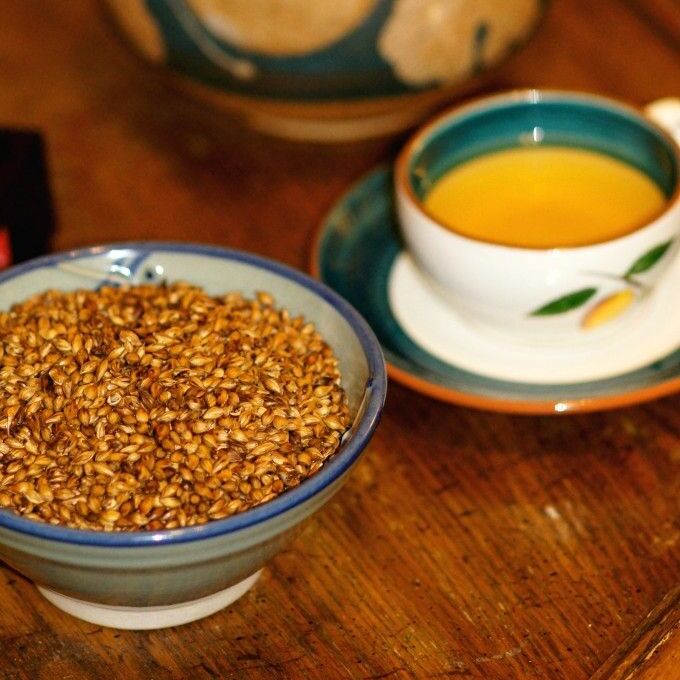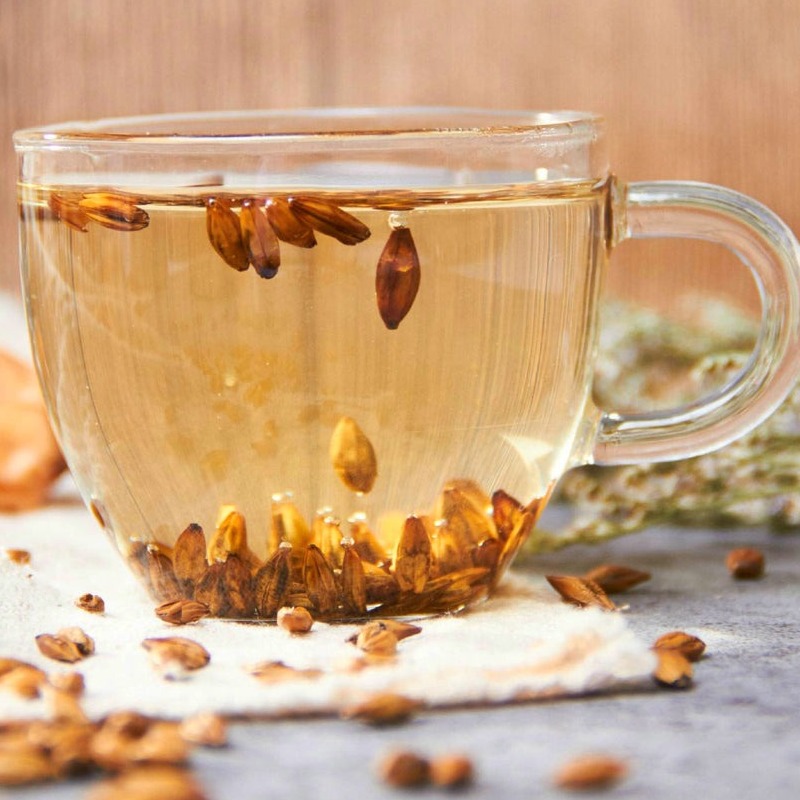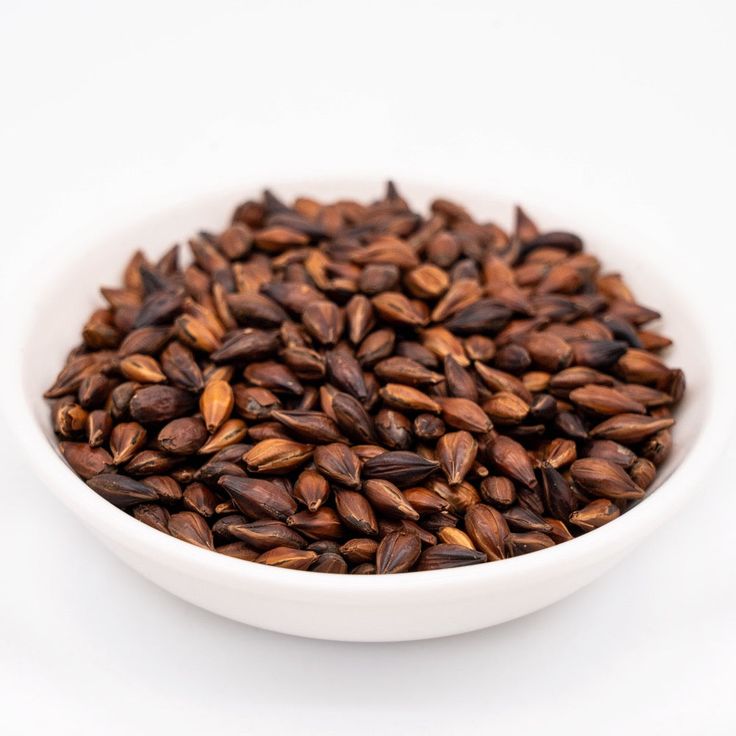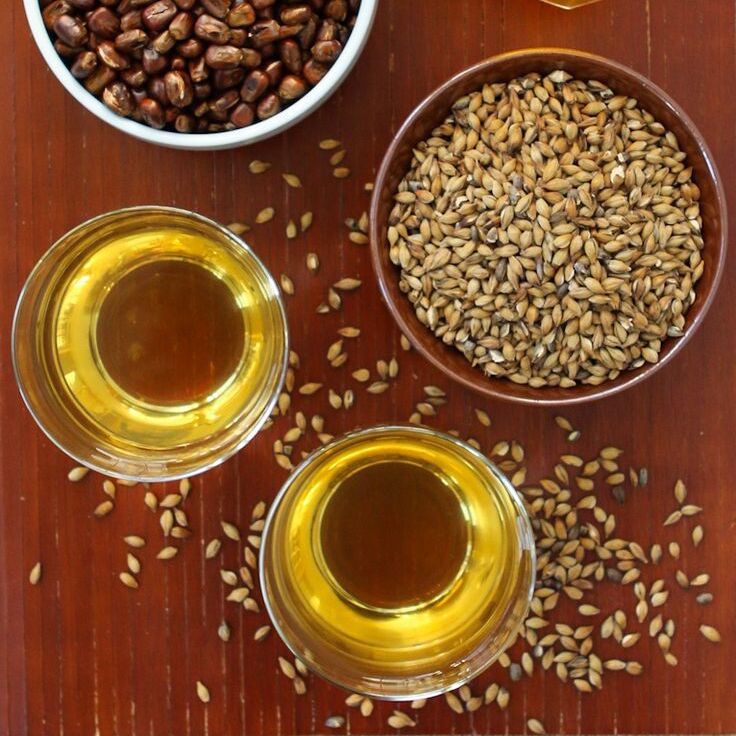What is Barley Tea?
Barley tea, a beloved beverage across many Asian cultures, features a distinct nutty flavor and a rich, aromatic profile. This delightful drink is created by roasting barley grains, which are then steeped in hot water to extract their essence. Being caffeine-free, barley tea serves as a comforting drink that people of all ages can enjoy. In this article, we will delve into barley tea benefits, origins, preparation methods, and the brewing process.

Origin and History of Barley Tea
Barley tea boasts a rich history, particularly in countries such as Japan, Korea, and China. In Japan, it is referred to as “mugicha,” and it has been cherished for centuries as a refreshing summer beverage. It is known as “boricha,” and is often enjoyed during meals as a nutritious alternative to plain water in Korea. In China, barley tea is valued for its soothing properties and is often linked to traditional health practices. Across these cultures, barley tea is deeply embedded in everyday life and customs, highlighting its significance as a staple drink.
How It’s Made: The Brewing Process
The preparation of barley tea begins with roasting barley grains, which helps to develop their unique flavor. Once roasted, the grains are steeped in hot water for several minutes to allow the flavors to infuse. Some individuals prefer to enjoy barley tea cold, particularly during the hot summer months, while others opt for the warm version for a cozy experience. For added convenience, pre-packaged tea bags are available in stores, catering to busy lifestyles. Nevertheless, many enthusiasts enjoy roasting and brewing their own barley tea, as it allows them to experience the authentic taste and aroma that comes from freshly prepared ingredients.
Nutritional Profile of Barley Tea
Barley tea is not just refreshing but also nutrient-rich. It contains key compounds that promote wellness. Let’s delve into its nutritional profile to understand why it’s a healthy beverage choice.
Key Vitamins and Minerals
Barley tea contains essential nutrients to support bodily functions:
- Antioxidants: Helps protect cells from oxidative stress.
- B Vitamins: Boosts energy and supports brain function.
- Potassium: Aids muscle function and heart health.
- Magnesium: Enhances bone strength and regulates blood pressure.
These nutrients make barley tea an excellent choice for daily health support.
Calorie Content and Natural Properties
Barley tea is calorie-free, making it suitable for weight management. It also contains no sugar or caffeine. Its roasted grains lend a nutty flavor that’s both satisfying and beneficial. The natural properties of barley grains include anti-inflammatory and detoxification effects.

Health Benefits of Barley Tea
Barley tea offers numerous health benefits, making it a wise addition to your daily routine. Rich in nutrients and antioxidants, it contributes positively to various aspects of wellness. Let’s explore how barley tea benefits digestion, weight management, and immunity.
Boosting Digestion and Gut Health
One of the standout barley tea benefits is its ability to enhance digestive health. The tea is rich in fiber and antioxidants, both of which support gut function. The natural compounds in barley can help cleanse the stomach, effectively reducing bloating. Furthermore, barley tea may soothe indigestion and promote regular bowel movements, making it a great choice for maintaining digestive well-being. Regular consumption of barley tea fosters a healthy gut environment and can alleviate minor gastrointestinal discomfort.
Supporting Weight Management
Another significant advantage of barley tea is its role in weight management. This beverage is calorie-free and contains no sugar, making it an excellent option for those focused on weight control. Its rich, nutty flavor helps curb cravings while ensuring you stay hydrated. Barley tea also supports metabolism due to its vitamins and minerals, including magnesium. Additionally, the tea’s natural diuretic properties can help reduce water retention, making it a refreshing choice for anyone looking to maintain or lose weight. Incorporating barley tea into your diet can assist you on your weight management journey.
Strengthening Immunity
Barley tea is also known to strengthen immunity through its high antioxidant content. These antioxidants help protect the body against free radical damage, which can lead to various health issues. The tea’s anti-inflammatory properties are beneficial for reducing chronic inflammation, further supporting immune health. Minerals such as potassium and magnesium play essential roles in maintaining bodily functions, making barley tea a useful beverage for overall wellness. By enjoying barley tea regularly, you can experience its many benefits and contribute to your health positively.

Barley Beverage and Its Role in Reducing Stress
Barley tea is known for its soothing properties. It helps relax the body and mind. The tea’s natural compounds contribute to stress relief and improved well-being.
Relaxation and Sleep Quality
Barley tea promotes relaxation, making it ideal for unwinding. Its calming effects improve sleep quality. Drinking it before bedtime can help ease tension. The absence of caffeine further supports restful sleep. The warm, nutty flavor adds comfort, aiding relaxation after stressful days.
Potential Anxiety Relief
Barley tea contains antioxidants that combat oxidative stress. This can lower anxiety and support mental wellness. Its anti-inflammatory effects may help regulate mood and reduce chronic stress. The tea also encourages gentle hydration, which supports overall mental balance. Drinking barley tea regularly can complement stress management practices effectively.
Barley Beverage for Skin Health
Barley tea not only enhances overall health but also promotes glowing, healthy skin. Packed with essential nutrients and beneficial natural compounds, it addresses various skin concerns effectively. Let’s explore how barley tea benefits skincare and contributes to a radiant complexion.
Antioxidants and Skincare
One of the key barley tea benefits for skin health is its rich content of antioxidants. These powerful compounds help protect the skin from damage caused by free radicals. Over time, free radicals can lead to premature aging, resulting in fine lines and wrinkles. Antioxidants in barley tea aid in neutralizing these harmful agents. Additionally, they support collagen production, which is vital for maintaining firm and youthful-looking skin. Moreover, barley tea has anti-inflammatory properties that can soothe skin irritation and redness. This makes it an excellent choice for individuals with sensitive skin. Regular consumption of barley tea can lead to a clearer and more radiant complexion, enhancing your overall skincare routine.
Hydration Benefits
Hydration is essential for maintaining healthy skin, and barley tea excels in this area. By keeping the skin properly hydrated, it promotes a healthy and plump appearance. Adequate hydration significantly improves skin elasticity and helps reduce dryness, giving it a softer, more supple look. Since barley tea is caffeine-free, it doesn’t contribute to dehydration, unlike some caffeinated beverages. This makes it a refreshing choice for daily hydration. Furthermore, the soothing flavor of barley tea encourages regular intake, ensuring you stay hydrated. A well-hydrated body often translates to smoother and softer skin. By incorporating barley tea into your daily routine, you can naturally enhance your skin’s moisture levels and achieve that coveted glow.

Barley Tea vs. Other Teas
Barley tea is a unique beverage that sets itself apart from other popular teas. Let’s explore how it differs in flavor, health benefits, and caffeine content when compared to green and black tea.
Differences from Green Tea and Black Tea
Barley tea, green tea, and black tea all have distinct flavors and characteristics. Here’s how they differ:
- Flavor: Barley tea has a nutty, roasted taste, unlike the earthy flavor of green tea and the bold, robust nature of black tea.
- Ingredients: Unlike green and black tea, which are made from tea leaves, barley tea is brewed with roasted barley grains.
- Nutritional Content: Barley tea is caffeine-free and calorie-free, making it lighter and more hydrating. Green and black tea contain caffeine and, depending on preparation, may have slight calorie content.
- Use: Barley tea is often consumed as a daily water substitute or digestive aid. Green tea is well-known for antioxidants, while black tea is favored for energy boosts.
These differences make barley tea a wholesome alternative for relaxation and hydration without caffeine.
Caffeine Content Comparison
Barley tea stands out because it contains no caffeine. This makes it ideal for all-day consumption, even before bed. By contrast:
- Green Tea: Contains moderate caffeine, about 20-50 mg per 8 ounces. It provides a gentle energy lift.
- Black Tea: Offers higher caffeine levels, around 40-70 mg per 8 ounces, offering stronger stimulation.
Choosing barley tea ensures you avoid caffeine-induced jitters or insomnia. Its caffeine-free nature also makes it suitable for children or individuals sensitive to stimulants.
In conclusion, barley tea provides a unique drinking experience. Its mellow flavor and caffeine-free properties set it apart from green and black tea. Consider incorporating it into your routine for added health benefits and relaxation.
How to Prepare and Enjoy Barley Tea at Home
Barley tea is simple to make and offers a delightful drinking experience. Whether you prefer it warm or cold, learning how to brew it the right way can enhance its flavor and benefits. Here’s how to prepare and enjoy barley tea in the comfort of your own home.
Step-by-Step Guide to Brewing
- Gather Ingredients: Start by gathering your ingredients. You will need either roasted barley grains or pre-packaged barley tea bags. Having everything ready will make the brewing process easier.
- Boil Water: Heat water to about 100°C for a warm tea. If you prefer iced barley tea, you can use room temperature water instead. Choose the water temperature based on your preference.
- Steep Grains or Tea Bags: Add the roasted barley grains or tea bags to the hot water. Allow them to steep for 5 to 10 minutes, depending on how strong you want the flavor. The longer you steep, the richer the taste.
- Adjust the Strength: After steeping, taste the tea. If you desire a lighter flavor, you can remove the grains or tea bags sooner. For a bolder taste, let it steep a bit longer.
- Strain and Serve: If you used barley grains, strain the tea before serving. You can enjoy it hot right away or let it cool if you prefer iced tea.
- Optional Sweeteners: For a touch of sweetness, consider adding honey or other natural sweeteners. This can enhance the flavor and make your barley tea even more enjoyable.
Tips for Enhancing Flavor
- Roast Your Own Barley: Toast fresh barley grains for a deeper, nutty flavor.
- Experiment with Water Temperature: Warmer water brings out stronger flavors; cooler water offers milder notes.
- Mix with Other Ingredients: Combine barley tea with mint, lemon, or ginger for added zest.
- Prepare a Concentrate: Brew a concentrated tea that can be diluted for cold servings.
- Chill for Refreshing Iced Tea: After brewing, refrigerate for a cool summertime drink.
- Pair with Meals: Enjoy barley tea as a complementary beverage with various dishes.
By following these steps and tips, you can customize barley tea to suit your preferences and enjoy its rich aroma and soothing benefits. Perfect for relaxation or hydration, barley tea is easy to make and adapt to any occasion.

Potential Side Effects and Precautions
Barley tea is widely recognized for its many health benefits, making it a popular beverage choice. However, it may come with side effects for some individuals. Understanding potential risks can help you enjoy it more safely. Let’s explore these precautions in detail to ensure you reap the barley tea benefits while minimizing concerns.
Allergies and Sensitivities
Some people may have allergies to barley grains, which can lead to symptoms such as rashes, itching, or upset stomach. Individuals with gluten intolerance or celiac disease should avoid barley tea completely. Barley grains contain gluten, which can trigger serious reactions for those affected by these conditions. It is essential to always check labels for gluten warnings and potential contaminants before purchasing barley tea. If you are uncertain about your sensitivity to barley, consult a healthcare provider for personalized advice.
Recommended Consumption Amounts
Moderation is key when it comes to enjoying barley tea. Drinking excessive amounts can lead to minor stomach discomfort, which can detract from its numerous health benefits. For most adults, consuming 2 to 3 cups daily is a safe guideline for regular enjoyment. Pregnant or nursing women are advised to consult their doctors before incorporating barley tea into their routines. Children can safely drink barley tea as well, but it’s important to keep portions small and monitor their reactions.
By adhering to these consumption recommendations, you can enjoy the numerous barley tea benefits without concerns. This way, you can appreciate its unique flavor and health-promoting qualities while staying mindful of your individual needs.